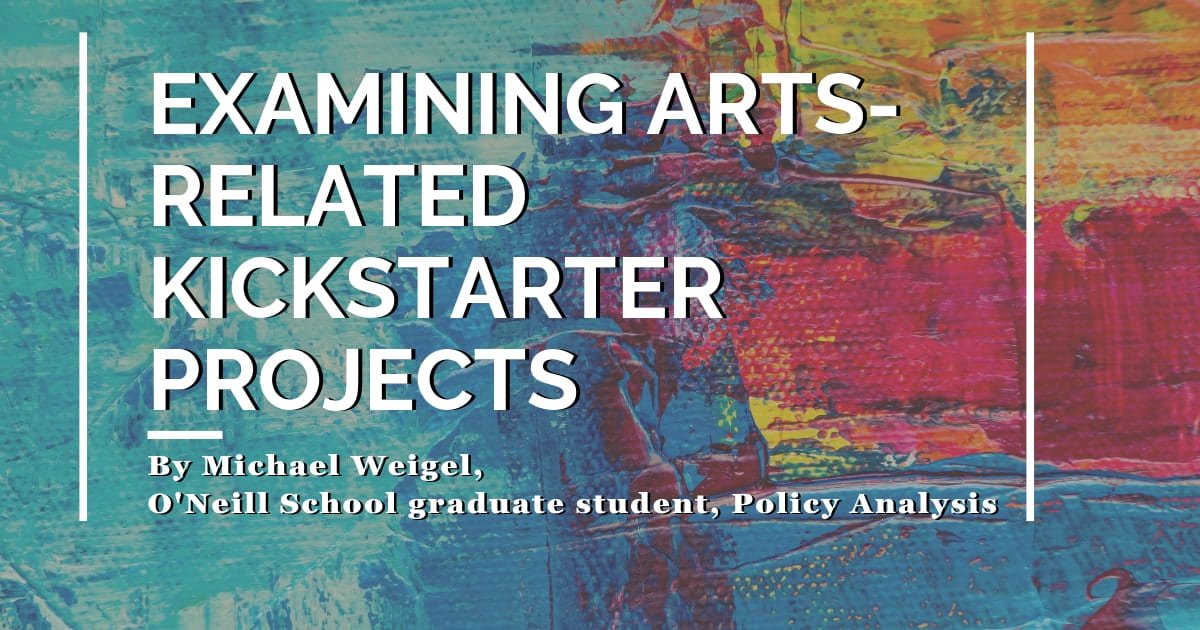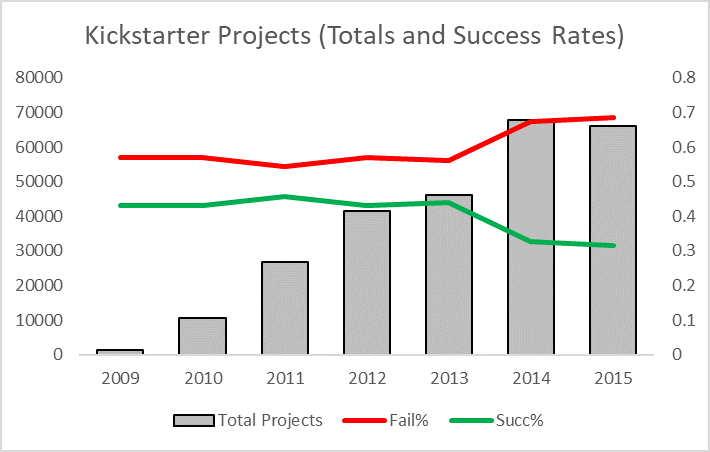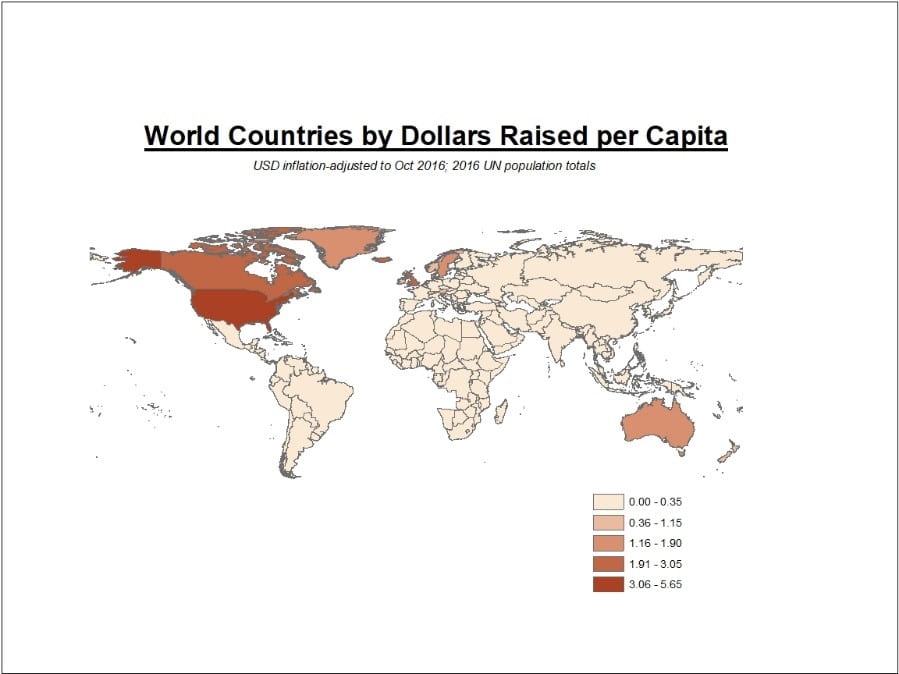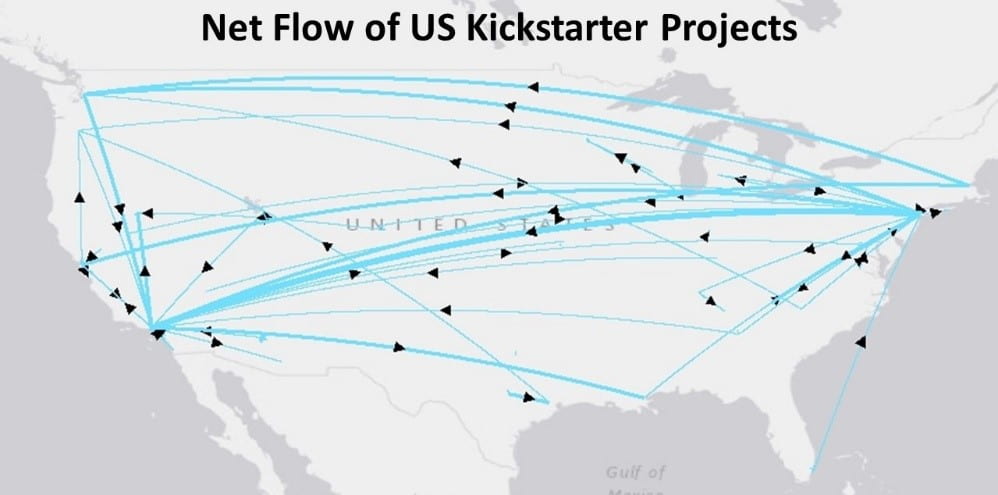Indianapolis, IN. – My name is Michael Weigel and I’m a first-year graduate student at the O’Neill School working on my Master of Policy Analysis. When not working on class projects, I serve as a graduate research assistant for Dr. Doug Noonan as part of the AEI Lab. My current focus is on artistic and creative projects financed through crowdfunding platforms such as Kickstarter. I’d love to share some of my initial insights.
For this analysis, our team is utilizing a database with information on every arts-related Kickstarter project hosted on the platform since its founding in 2009 up to October 2016. Each listing contains information on the genre and subgenre of the project, the amount of money requested and pledged, the number of backers, location of origin, and more.
The opening months of our analysis of this data has already yielded several interesting insights:
- The total number of projects launched has continued to expand regularly from year to year as more artists in more countries become aware of the possibilities involved. Additionally, the rate of successfully meeting funding goals for projects has shrunk slightly over time from about 40 percent to 30 percent as more competitors enter the crowdfunding market.
- In terms of both dollars raised and overall projects, the vast majority of creative Kickstarters are launched from the United States or Europe.
- The basic relationship that exists between countries and Kickstarter activity also is seen in cities. In general, larger urban areas host more diverse and more successful projects than rural areas where funding sources are not as readily available.
Our research going forward will focus on repeat creators who initiate a crowdfunded artistic project in one city, then do the same after moving to a different city. Most of the movement from city to city occurs between areas with large populations. However, the new flow and direction of movement for projects in more rural areas also will be interesting to observe.
A long-term goal of this research thrust is to determine what factors cause creators to choose specific cities in which to launch their artistic crowdfunding projects. Our team has worked to compile research on the political and legal frameworks that govern these sorts of projects in the United States:
- Most existing federal laws are more concerned with equity-based crowdfunding (where a share in a business venture is sold) than in the reward-based projects our team is researching. Since this technology didn’t exist until 10 years ago, the lack of regulation is unsurprising.
- There are 36 states with intrastate crowdfunding exemption laws on the books. It is common practice for states to encourage investments in local business and artisans in a variety of ways.
- Most tax experts recommend listing donations and profits from Kickstarter projects as taxable income, but some believe that pledges can be listed as tax-free gifts in certain circumstances.
- Only 9 percent of crowdfunded projects fail to provide promised deliverables to their donors, and most of these instances aren’t acts of intentional fraud. Additionally, the size of the average donation is typically small enough that lawsuits claiming failure to deliver a promised reward are quite rare.
- Since projects of this nature can offer high exposure to new products very early in their developmental phase, researchers in this field believe patent and copyright protections could benefit from reform.
In the long-term, the goal of this research is utilizing existing knowledge about Kickstarter projects and their creators to develop a predictive model for where repeat creators move and why. We also have a great interest in learning more about what factors distinguish successful projects from those that fail to meet funding goals. In addition to academic significance, this research will have multiple direct applications for both local artists and Kickstarter users around the world. Opportunities like this that combine engaging learning experiences with the chance to create new discoveries that change people’s lives for the better are part of what made the O’Neill School my school of choice for graduate study. I’m very excited to see where this strain of research takes us!






